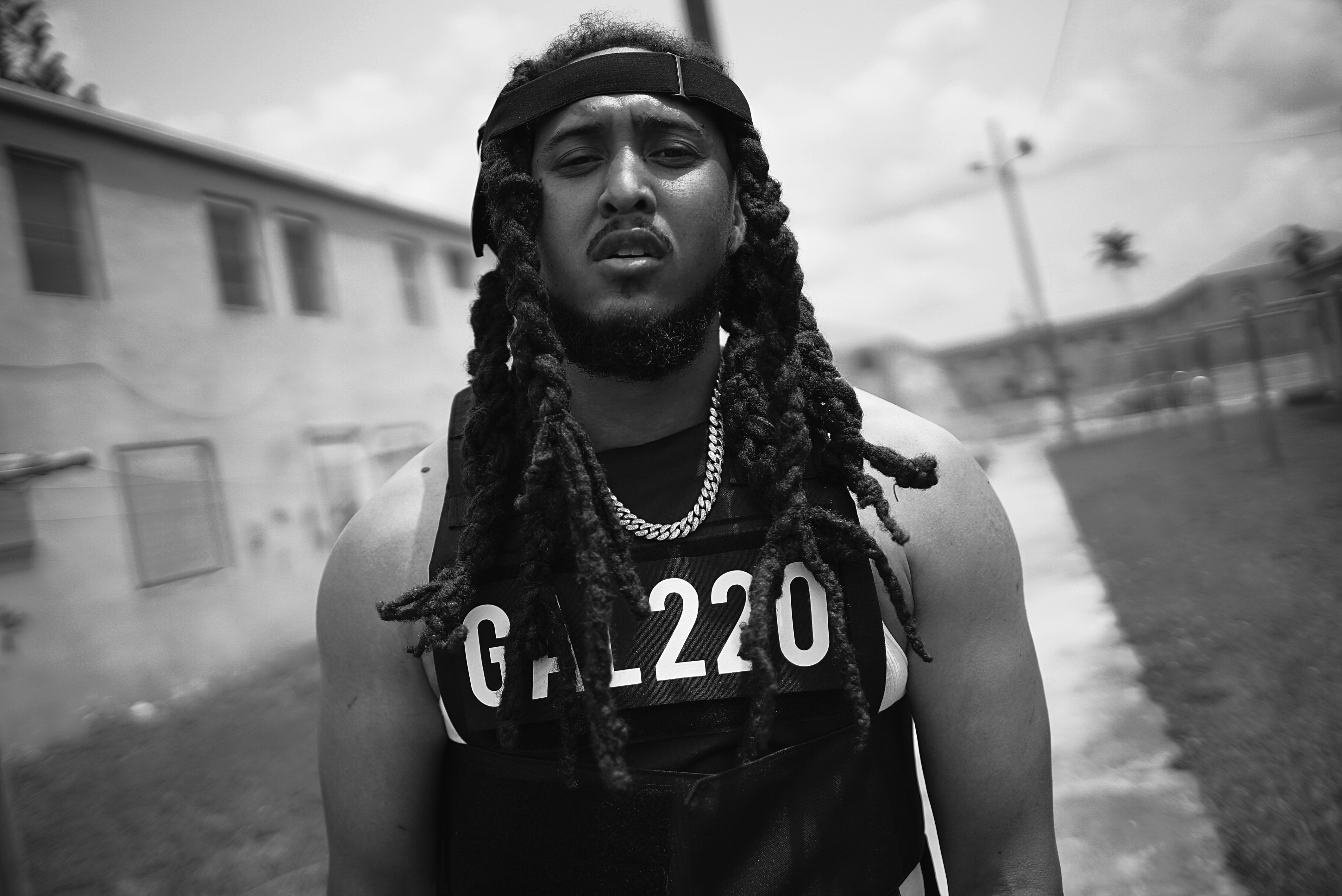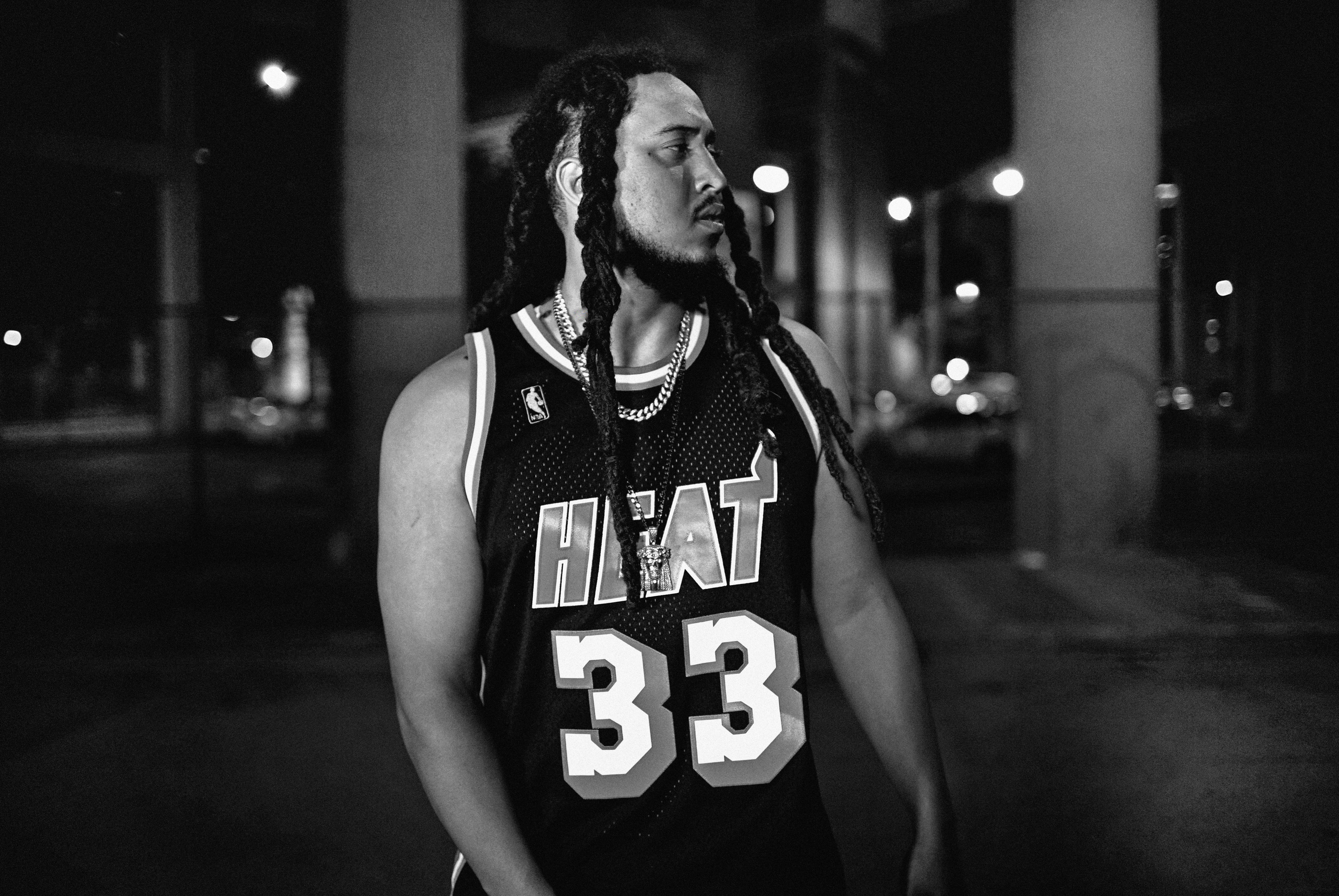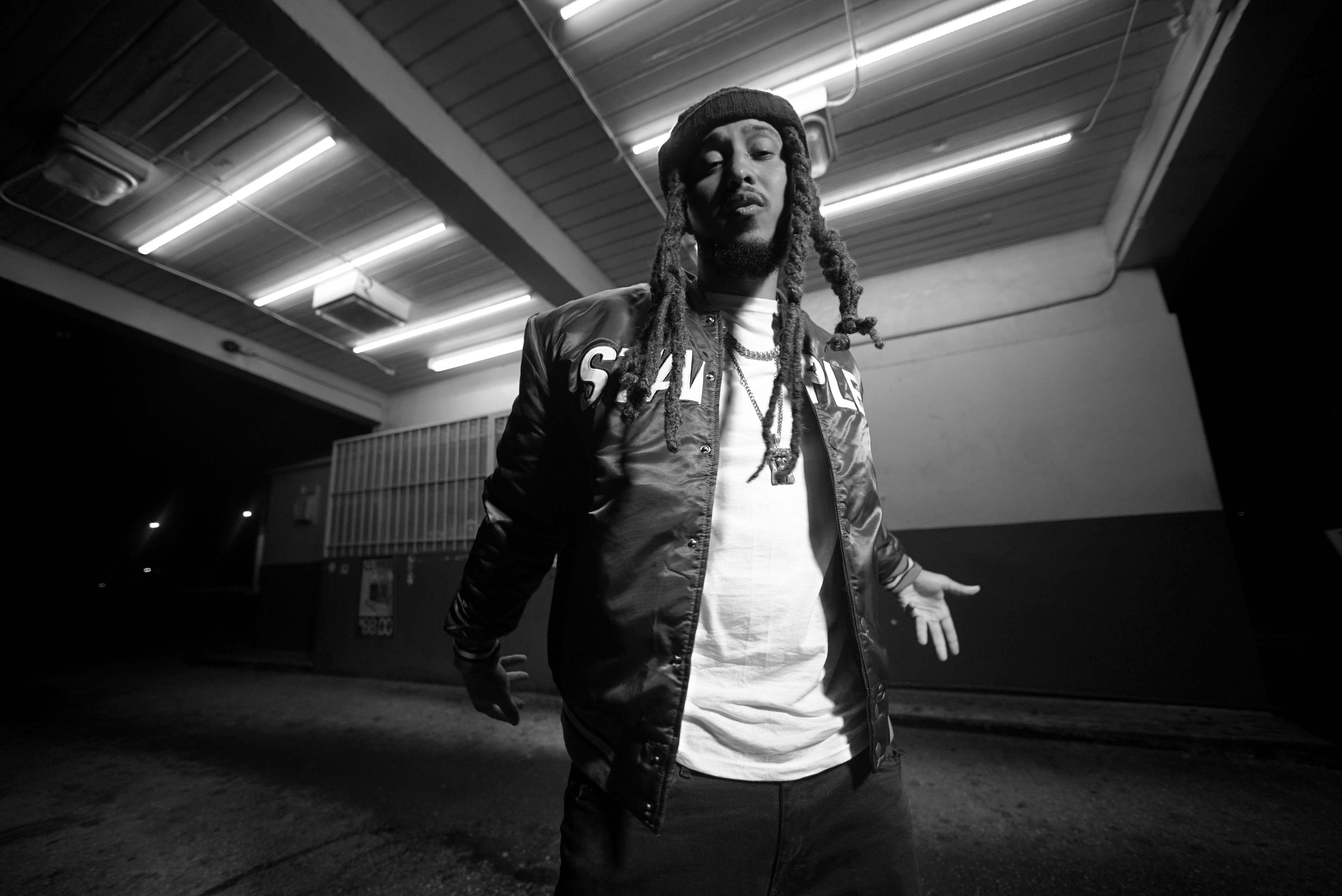

RECONCLE aka Ronnie Lillard was born bound within the gritty landscape of chalked lines. In the middle of his childhood, he suffered his first loss when he was abandoned by his mother and left to be raised by his father in Fort Myers better known as “Little Pakistan.” Despair and poverty were bedfellows and gun shots were more frequent than thunderstorms. Prior to becoming a teen, the message was resoundingly clear. The soundtrack to his life then was “murder rap”, Ronnie survived the culture. Unshaken by the harsh realities, of which he inherited, he succumbed to his surroundings: depleted resources, constant trauma, family disfunction, incarceration, violence, dreads, gold teeth, drugs and firearms. South Florida.
Encouraged by his passion for his people and the love of music, under the moniker of Reconcile he began crafting a message for his generation. Digging into the recesses of a hardened heart and calloused hands he projected his pain with honesty and energy. Truth resonated and the images that he captured of his hood while telling his story over a frenetic beat caught fire. Reconcile represents a void for hip hop. Raw. Unapologetic. Meaningful music. Reconcile’s words champion the forgotten and serves as the rhythm hidden in the pulse of those getting by on hope. Despite how heavy the cross to bear, Reconcile is willing to carry the weight until minds are set free. One soul at a time. Reconcile states “As I began seeking a real relationship with the Lord my life changed and the value of everything else in my life began to decrease as my desire and passion to know Jesus intimately and follow him grew. The gospel of Christ brought perspective and hope out of the pain I had endured. I wanted to go and tell people about the one who has redeemed me, I wanted to share this hope with those who are from broken homes, trailer parks, and the projects… that Jesus can save them too.”
Reconcile’s “Streets Don’t Love You” Mixtape series carries the weight of full-length albums. Reconcile delivers a piercing yet hopeful view of the ongoing inner-city epidemic in America. With sobering and honest lyrics that point towards a consistent theme of dependence on Jesus and hope in the midst of pain, social injustice, and personal failure, Reconcile both affirms and challenges all of us. The mixtape series “Streets Don’t Love You” has been deemed a timeless classic by his constituents with his 3rd installment debuting # 5 on the iTunes Rap charts.
The Miami native not only challenges our views on faith and race in America but he also has been an advocate of social justice and juvenile/adult prison reform in both Houston, TX, and Miami, FL. Not just an artist Reconcile is a social justice advocate for Prison reform, police reform, juvenile justice, and racial equality. Reconcile holds a degree from Rice University which he triple-majored while his time as a student-athlete and has a master’s degree in Public Administration.
SOCIAL JUSTICE
In 2012 Reconcile founded a non-profit dedicated to Houston youths that were in gangs. The organization founded was called “Live Frontline” and because of the relational Reconcile had built with Probation Supervision in Houston our program became a chief service for troubled youth in the inner-city of Houston. Today I am the Director of Juvenile Justice re-entry efforts in Miami and Broward County. I manage services for youth and program development for the Department of Juvenile Justice through our tailored MOU. In addition to what is mentioned above Reconcile is a leading voice amongst urban Christians in America. Reconcile was a frontline contributor to advocating for my friend George Floyd after his untimely demise and throughout his trial, using my platform and profession to bring light, justice, and a positive voice to the issue (via The Associated Press, Washington Post, NPR, BCC, Houston Chronicle, etc.). For the past two years, Reconcile has worked with Miami Mayor Saurez and State Attorney Katherine Fernandez Rundle on initiatives about improving policing, juvenile justice, and black life in the city of Miami and across the state of Florida.
In 2020, Reconcile joined the Continuing Justice Reform Committee initiated by State Attorney Katherine Rundle and the Miami-Dade County State Attorney’s office. The committee and I drafted House bill #1513 and Senate bill #1970. The bill would mandate the extra training as part of standards created through the Florida Department of Law Enforcement, the statewide police agency that oversees police officer certification. It would also push for additional resources for mental health and wellness support for officers dealing with the strains of the job. If it were passed, it would require police agencies to adopt a written policy that officers have an “affirmative duty to utilize de-escalation techniques in his or her interactions with citizens wherever possible.” The bill would also include uniform “crisis intervention training,” to help officers deal with people suffering from mental illness, disabilities, or substance abuse issues. Reconcile currently sits on the Circuit 11 Advisory Board for Juvenile Justice and is a key contributor to the State Attorney’s task force for Juvenile Justice in the state. In 2022, Reconcile led a TEDxTalk in Miami, FL addressing inadequacies in the juvenile justice system as well as the cultural impact of negative rap on communities of poverty.


